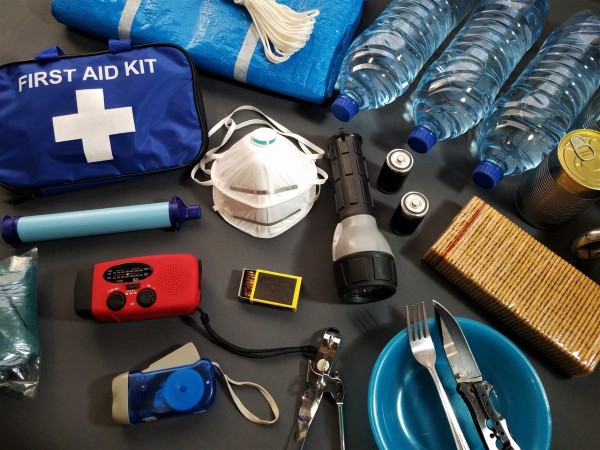
A well-stocked first aid kit is a daily essential. Whether you keep yours in your car, bag, or desk drawer, here are a few items to make sure you include to keep you prepared:
Painkillers
Keeping some painkillers in your first aid kit is a great idea as they can be used to treat a variety of aches, pains, and injuries. Ibuprofen has anti-inflammatory properties which can help bring down swellings on sprains and is also available in ointment form. There are several varieties of painkillers available with different strengths, and some require a doctor to prescribe them. It's also important to make sure you have enough of any specific prescribed personal medications on you at all times.
Antiseptic wipes
These can be used to clean out any wounds, reducing the chance of infection and foreign bodies under the skin. Alcohol-free versions also reduce the sting when applied, which is great for young kids or sensitive skin. Small and single-use wipes are perfect to slip into your kit or pockets; make sure you order in bulk so that you can easily and quickly replace them once you have used them. It is incredibly important to disinfect any injury as soon as possible as failure to do so can lead to a whole host of infections and issues, including tetanus and sepsis.
Eye drops
It is a good idea to carry eye drops with you, especially if you are prone to allergic reactions. Dry and irritated eyes are incredibly uncomfortable, and constant rubbing can lead to further issues. Using eye drops for allergies to soothe a reaction helps remove the symptoms, such as itching, watering, and burning, allowing you to enjoy your day without frustration and pain. Your eyes are incredibly delicate and sensitive, so taking good care of them is important.
Gloves
Another important step in reducing the risk of infection is wearing medical sterile gloves when touching open wounds. A non-latex pair is ideal, as latex allergies are very common and can make a first aid situation even worse. Similar to wipes, these should be single use only and disposed of and replaced as soon as possible. There are plenty of variations and sizes, so make sure you find a brand that works well for you.
Bandages
Having a variety of dressings, bandages, and band-aids in your first aid kit is essential. There is a huge variety available, and it's a good idea to have several different sizes and materials to hand. Adhesive bandages are great for cuts and scrapes as they add an extra layer of protection for the wound. Support bandages are also important to help with twists and sprains, controlling swelling, and supporting the joints.
These are just a few things that you should seriously consider keeping in any first aid kit, but there are plenty of other items that are important to include. Obviously, you can personalize your kit to fit your medical needs and activities, but having one or more kits on you at all times is very important to make sure you are as prepared and safe as possible.

